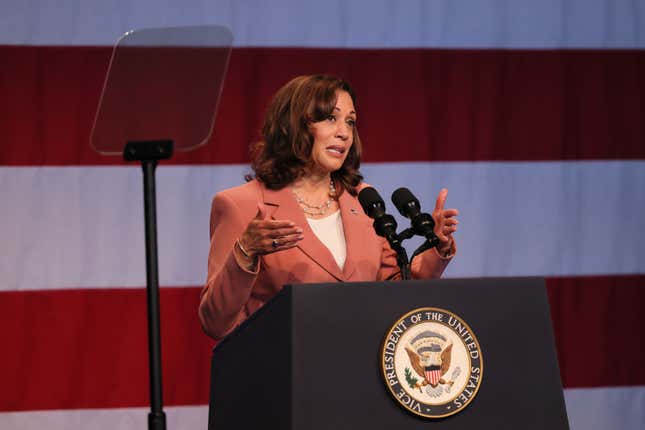
Massive heatwaves, Kentucky flooding, and California wildfires are just some current examples of climate change the country is struggling to fight. The first half of 2022 alone is the sixth warmest on record. While the Inflation Reduction Act could bring more clean energy initiatives, Vice President Kamala Harris is expected to announce grant programs making available $1 Billion in order to aid individual states against extreme weather, CNBC reports.
“The Biden-Harris Administration is taking a wide range of actions to respond to intensifying heat waves and reduce associated health risks, especially for vulnerable groups and underserved communities,” the White House wrote in a statement.
“We know that the impacts of the climate crisis are here, and that we must invest in building resilience to protect our communities, infrastructure and economy,’’ the White House said in a statement.
Harris will formally announce the move after she visits the National Hurricane Center and Florida International University in Florida today. The Vice President is also expected to speak about extreme weather events. Just today, Kentucky Governor Andy Beshear has stated the death toll from flooding has risen to 35 people. These funds are in addition to the $2.3 billion the Biden administration set aside last month for states to deal with hot temperatures.
A total of $1 billion will be made available through the Building Resilient Infrastructure and Communities program, with another $160 million to be offered for flood mitigation assistance. FEMA head Deanne Criswell states this new round of funds will “help to ensure that our most vulnerable communities are not left behind, with hundreds of millions of dollars ultimately going directly to the communities that need it most,″
“Communities across our nation are experiencing first-hand the devastating impacts of the climate change and the related extreme weather events that follow — more energized hurricanes with deadlier storm surges, increased flooding, and a wildfire season that’s become a year-long threat,” FEMA head Deanne Criswell said.

